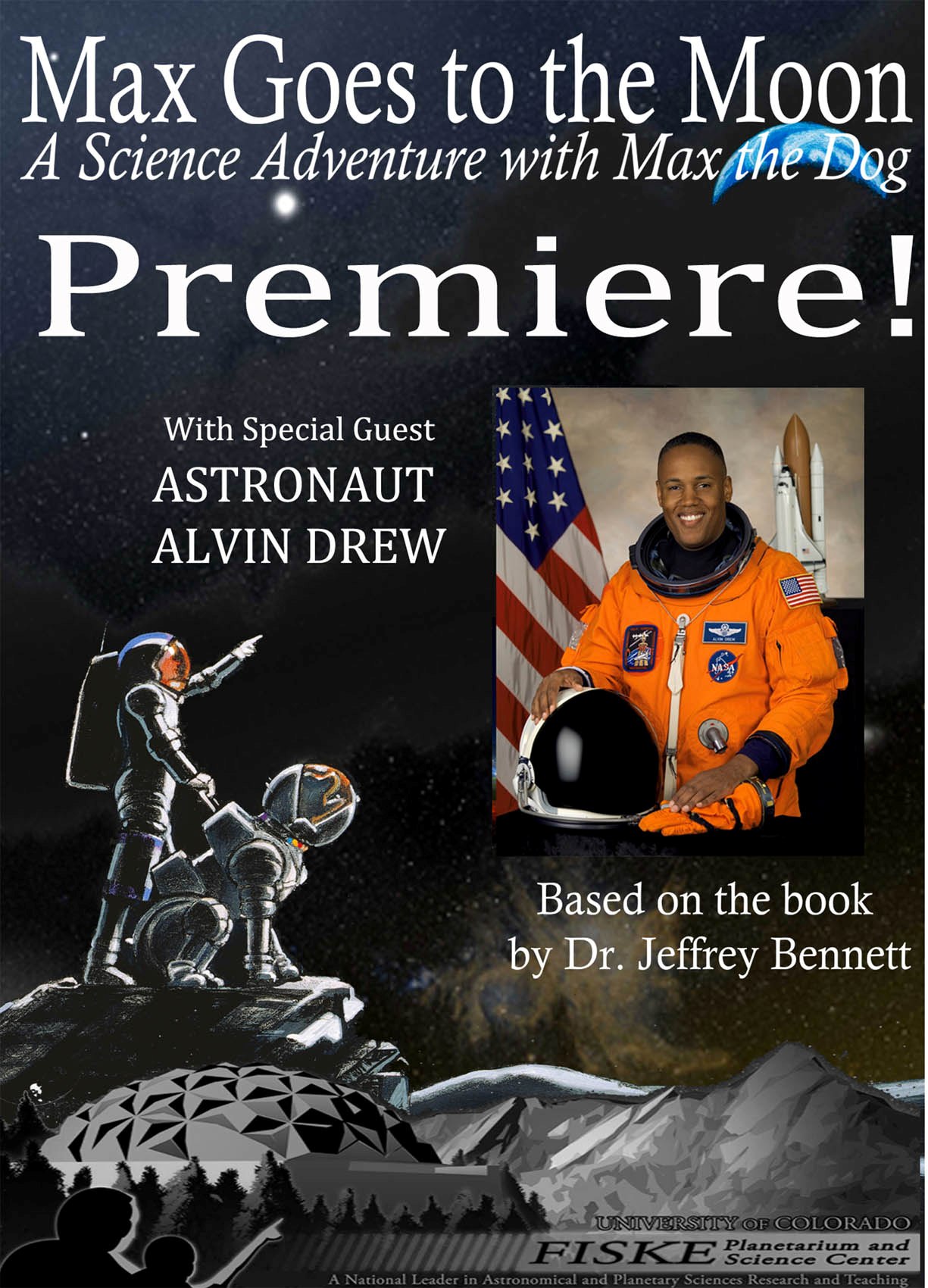Education & Public Outreach
As part of the NASA comminity, the LUNAR team is dedicated to sharing our research with the public and helping foster the next generation of scientists and engineers. We have multiple projects aimed at providing education and public outreach for schools K-12 and the general public.
Fiske Planetarium Shows
The first two parts of this project are 2 planetarium shows to be written, produced and distributed by Fiske Planetarium:
“Max Goes to the Moon”
This show will be aimed at K-5 students. An adaptation of the award winning book “Max Goes to the Moon” written by Dr. Jeffrey Bennett. (35 minutes)
Status: Max Goes to the Moon is up and running! Thank you to all who have given us feedback and support. We hope you enjoy the show.
Our public premier of Max Goes to the Moon was held on March 17, 2012 at Fiske Planetarium. A special presentation by astronaut Alvin Drew preceded the show!

“The Dark Universe: Looking Back to the Future”
This is a show that will be aimed at the general public. The show constructs a timeline of the Universe's history to describe how the structure of the universe has changed over time, through the interplay of gravity and expansion. (45-60 minutes)
Status: A first draft was presented to the public on April 17, 2012. We are reviewing the feedback that we recieved and hope to give another presentation in June. Stay tuned for exact showtimes.
Teacher Training and Workshops
The third part of our E/PO is developing workshops for K-12 teachers. We will provide content and hands-on demos for them to take back to the classroom. Participating teachers are eligible to receive graduate or continuing education credit.
“Journey Through the Universe”
The team sent two representatives to to participate in the Journey Through the Universe program in Hilo, Hawaii. The program sends research scientists to give astronomy leassons to K-12 students as well as giving teacher training sessions and public lectures. (March 1-9, 2012)
Astronomy Day 2012
A total eclipse of the sun will pass through the western United States in the evening of May 20, 2012. To celebrate this rare event, Astronomy Day 2012 will highlight the eclipse. CU Fiske Planetarium, the LUNAR team, and seveal sponsors will provide a great viewing location, protective eyewear, and presentations by professional astronomers about this amazing phoenomenon. More details about how you can sign up to participate with us this year are coming soon. To get more details about this eclipse in general, follow the NASA eclipse link here:
Solar Eclipse May 20, 2012
Public Lectures and Outreach Programs
The LUNAR team routinely collaborates with the Fiske Planetarium and other venues to give public presentations about our research results, current and future missions, and general knowledge about our area of expertise, the moon. The moon is not just a great library that records the history of the Moon, the Earth, and the entire solar system; the LUNAR team hopes to use the Moon as a platform for probing previously unexplored epochs of our Universe's history. We seek to answer questions like "When did the first stars light up the sky?" and "How did the first galaxies form?" Our Public Lectures and Outreach page is a great place to get a background about the exploration history of the moon, as well as helps contextualize how our research will fit in with NASA's astrophysical and planetary science goals. Click this link to view videos of our media broadcasts:
Public Lectures and Outreach Programs
Lunar Robotic Rover Tests
Students from Thomas Jefferson High School for Science and Technology in Alexandria, Viginia developed and tested a roboitic rover in their class room. This project has the goal of designing and building a small remote controlled rover to drive around some obstacles and deploy a few meters of Aluminum foil. This Aluminum foil is simlar to the Kapton film we are currently testing in the lab for use on low frequency radio array's on the moon. We plan to expand this project to other High Schools and robotics clubs in Colorado and beyond.
For more information about this project, please contact Matt Benjamin at culunar@colorado.edu.




